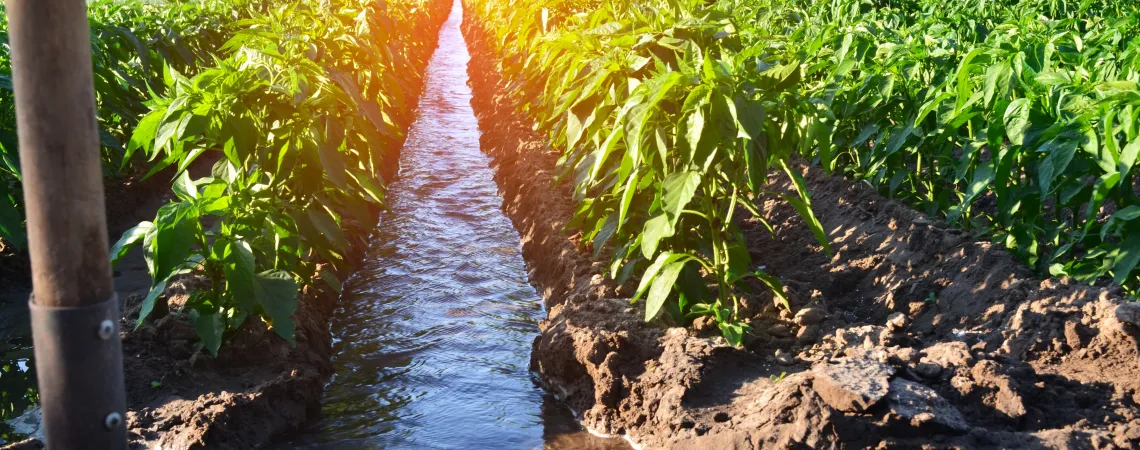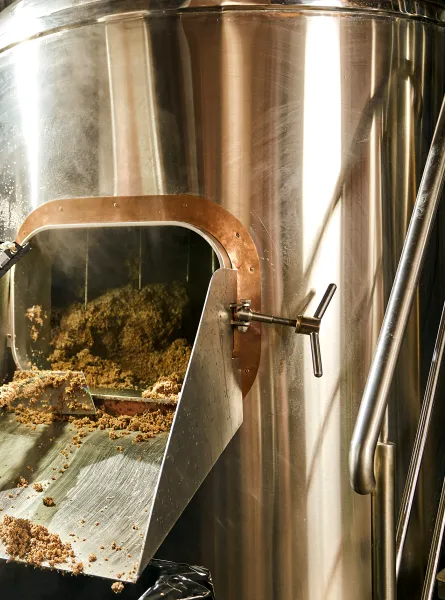
Water, crucial for life and agriculture, faces increasing pressure due to the global population rise. With agriculture consuming nearly 70% of our freshwater, reflecting on our food choices is vital to ensure the sustainability of this essential resource. This article presents simple alternatives to reduce our water footprint.
1. Opt for Plant-Based Dairy Alternatives
Dairy production is a significant water consumer. By choosing plant-based alternatives, you can lessen your water impact. These alternatives generally require less water for production, offering a more sustainable option.
2. Choose Less Water-Intensive Plant-Based Beverages
Almond milk, popular among lactose-avoiders and flavor enthusiasts, conceals an alarming environmental reality. Producing one kilogram of almonds needs about 3,158 litres of water, a hefty amount, especially in drought-stricken areas. Notably, 80% of the world's almonds are produced in California, a state with scarce water resources. A better alternative? Soy milk, requiring ten times less water!
3. Select Plant Proteins Over Beef
Cattle farming, particularly for beef production, accounts for a considerable portion of water use in agriculture. Water is used to hydrate animals, grow their feed, and maintain farming facilities. Beef is one of the most water-intensive meats, making it a less sustainable choice for those looking to reduce their environmental impact. Legumes are a more sustainable option, requiring little water and having a low carbon footprint. Here are some delicious recipes featuring them:
4. Choose Local and Seasonal Fruits and Vegetables
Opting for local and seasonal fruits and vegetables helps save water. These products require less transportation, thus indirectly reducing water usage. Additionally, being naturally grown in their environment, they often need less irrigation. By preferring these products, you support the local economy and decrease the water footprint.
5. Reduce Food Waste
Combating food waste is crucial for water conservation. Every wasted food item represents water used unnecessarily in its production. By consuming responsibly and avoiding waste, you directly contribute to preserving water resources.
6. Favor Low-Water-Consuming Grains
Choosing grains like barley, quinoa, or millet, which require less water than rice or wheat, is a sustainable step. These grains, adapted to drier climates, contribute to water-efficient agriculture.
7. Be Aware of Our Choices
Being aware of the water needed for our food production allows us to adopt a more responsible approach. Reducing consumption of certain products or choosing sustainable alternatives can significantly contribute to preserving our precious water resource. Each food choice is an opportunity to positively impact our planet.
Concerned about your environmental impact and water consumption? Make an appointment with a registered dietitian nutritionist from TeamNutrition today to learn about environmentally friendly and health-conscious alternatives.
Sources
- Union des producteurs agricoles. (n.d.). La consommation d’eau. UPA. https://www.upa.qc.ca/producteur/centre-des-communications/dossiers-thematiques/les-champs-changent/la-consommation-deau#:~:text=%C3%80%20titre%20de%20comparatif%2C%20la,culture%20qui%20est%20majoritairement%20irrigu%C3%A9e
- Khokhar, T. (2017, 22 mars). Graphique : 70 % de l'eau douce est utilisée pour l'agriculture. Banque Mondiale. https://blogs.worldbank.org/fr/opendata/graphique-70-de-l-eau-douce-est-utilisee-pour-l-agriculture#:~:text=Dans%20la%20plupart%20des%20r%C3%A9gions,pr%C3%A9l%C3%A8vements%20de%20ressources%20en%20eau
- Mulvaney, K. (2022, 15 décembre). Laits végétaux : une alternative plus écoresponsable au lait d'origine animale ? National Geographic. https://www.nationalgeographic.fr/environnement/2022/12/laits-vegetaux-une-alternative-plus-ecoresponsable-au-lait-dorigine-animale
Pulses.org. (n.d.). What are Pulses? Pulses. https://pulses.org/nap/what-are-pulses/





